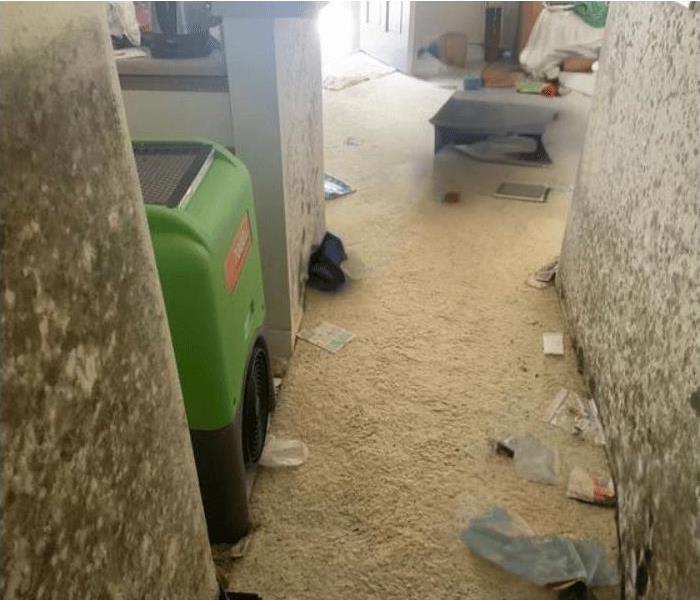Preventing Mold Through Proper Drying Techniques
6/20/2024 (Permalink)
Mold is an ongoing problem on Oahu due to the tropical climate of the island. Frequent rains, prevalent high humidity, and overall damp conditions combined with year-around heat create a near-perfect environment for mold to emerge and then thrive. The opportunity for mold growth can increase when major water damage occurs, often from flooding due to natural causes or damaged plumbing. Many of the homes and businesses on Oahu are constructed with materials that are favorable to mold growth, especially when improperly dried or not dried at all. Organic materials such as wood and drywall are porous and can trap moisture. When this trapped moisture is kept warm for a long period, mold can grow. If left unchecked under these conditions, mold can spread rapidly, leading to potentially dangerous air quality, especially for those individuals with mold allergies. At SERVPRO of Downtown Honolulu, we follow a tried and tested program to make sure your home or business is properly dried. After the initial extraction of standing water and removal of any permanently damaged materials, our team will manipulate temperature and relative humidity to remove the remaining moisture. We use specialized equipment, including industrial air movers and dehumidifiers, to remove water retained by building materials and other hard-to-access moisture. We’ll carefully monitor the progress using moisture meters until the materials return to acceptable drying goals. Without moisture, mold cannot grow.
Health Risks Associated With Mold
Mold releases microscopic spores into the air, and microbial volatile organic compounds, which can make you sick. How quickly you react to mold depends on your immune system and if you have an allergy to mold. Long-term exposure to mold can lead to more serious health problems. Some of the symptoms observed from mold exposure are runny nose, itchy eyes, sneezing, asthma attacks, headache, nasal congestion, shortness of breath, wheezing, chest tightening, dry coughing, and painful breathing. If you smell or see mold, call your local SERVPRO® to come out an assess the situation. If mold is discovered, our team has the training, equipment, and expertise to remediate your mold infestation.

 24/7 Emergency Service
24/7 Emergency Service
